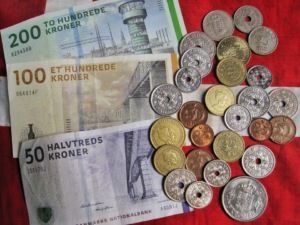News
Denmark the EU leader for digital payments
This article is more than 7 years old.
Eight out of ten Danes shop online and there are still fewer cash payments in Danish shops

Still in the teller, or an archaic afterthought? (photo: Pixabay)
When Danes go out to purchase a litre of milk or a new pair of shoes, the vast amount of their transactions occur digitally these days.
In fact, according to the latest figures from the central bank, Danmarks Nationalbank, Denmark leads the way in the EU when it comes to digital payments.
Eight out of ten Danes shop online, and with the likes of MobilePay taking the country by storm, fewer than 25 percent of transactions in Danish shops involve cash.
“Try to ask people what a 1,000 kroner note looks like. Most people won’t know, and many of us don’t even carry cash anymore,” Jan Damsgaard, the head of the Department of Digitalisation at Copenhagen Business School (CBS), told DR Nyheder.
“Meanwhile, if we travel to Germany, it’s completely different. And if we fly to the US, you can still pay using a check. In Denmark, we’d got rid of that by the end of 2016.”
READ MORE: High mobile pay rate suggests Denmark could soon be a cashless society
Cash ban by 2025?
Based on figures from last year, Danmarks Nationalbank estimates that 46 percent of Danes carry less than 100 kroner at any given time.
And according to Anders Dam, the head of Jyske Bank, that could be a good thing. He hopes that Denmark bans cash outright my 2025 as it would have a significant impact in the fight against bank robberies, drug crime, money laundering, social fraud and under-the-table work.
But Damsgaard is against such a measure because he expects the use of cash to die out on its own in the future.
“If you ban cash, I think we’ll get the euro as a parallel currency in Denmark, and criminals and shady activities will work with that instead. I don’t think we can underestimate how much cash still means to smaller businesses and to the elderly,” said Damsgaard.










































